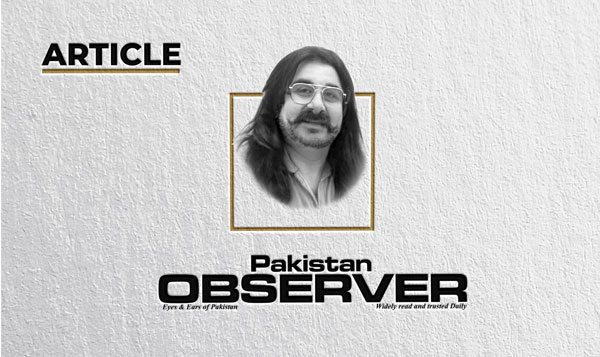Xi ends Iran-KSA enmity
XI Jinping’s re-election for a third term came as no surprise. He has been widely regarded as one of China’s most powerful leaders in recent history. In a landmark development, Xi Jinping secured a precedent-breaking third term as President of China capping a rise that has seen him become the country’s most powerful leader in generations. All 2,952 delegates of the National People’s Congress (NPC) voted in his favour at an epoch-making session held at Beijing’s famous Great Hall of the People. He was also re-elected as the head of the country’s Central Military Commission, the highest national defence organization in China. The whole hearted confidence that the parliamentary leaders reposed in the leadership of Xi was not unexpected given his overall popularity among people because of his visionary policies and programs that have put China on an accelerated path of progress and development. The oath he took after his historic re-election symbolized his vision as he vowed to build a prosperous, strong, democratic, civilized, harmonious and great modern socialist country.
Today Xi Jinping is the most powerful man in the world. He wants to see China as the most powerful country. The Iran-Saudi tension has been successfully brokered by China. This has been coupled with a rallying gesture for the nation to unite behind him in confronting challenges posed by western powers to contain China’s rise. Xi also declared that China faced all-round containment, encirclement and suppression by the USA and its allies. President Xi also has a definite plan to give a boost to his country’s economic and military strength as he wants China to wean itself from its reliance on western-held technologies and expertise, and to fortify itself against risks to food and energy security. All this is in line with the overall approach of Xi Jinping, who launched the historic One Belt, One Road (OBOR), a global infrastructure development strategy adopted in 2013, to invest in more than 150 countries and international organizations. This is the clearest example of China’s policy of peaceful co-existence based on mutually beneficial development cooperation. Pakistan is proud to be the first partner of its great neighbour under the framework of China-Pakistan Economic Corridor (CPEC), an initiative considered to be the role model practical implementation of the OBOR. It is because of China’s commitment to the progress and development of Pakistan under the leadership of President Xi Jinping that his re-election for the third term is a reassuring development for the people of Pakistan.
The sudden announcement of Iran-Saudi normalization has surprised the entire world. Tension between the two countries is attributed to the execution of Ayatollah Baqir al-Nimr in Saudi Arabia in 2016 and the attack on the Saudi Embassy in Iran. Two years ago, both Iran and Saudi decided to negotiate. Resultantly normalization is attained under the mediation of China. The first news of these negotiations appeared two years ago in the newspaper “Financial Times” that the officials of the two countries had met in Baghdad and discussed the restoration of relations. Although Saudi Arabia initially denied the news, Mohammed bin Salman later announced that he was seeking to improve Iran-Saudi relations. His words surprised many quarters, as he said five years ago that Iran’s Ayatollah Ali Khamenei “looked like Hitler was a good man.” But how was such a u-turn possible? What are the reasons? Why are the enemies of decades ready to talk directly? While Saudi capitalism is another reason. Saudi Arabia was also providing huge funding against Iran and had announced not to negotiate with Iran under any circumstances.
Such a large investment in Saudi Arabia’s military sector swallows up all the resources that could be used elsewhere in Bin Salman’s economic plan for a modern Saudi Arabia. After normalization with Iran, this money will now be invested in the projects of modern Saudi Arabia. Iran has also greatly benefited from these negotiations. The value of the currency increased by 6% the first day itself. On the other hand, Saudi Arabia has refused to grant visas to a delegation of Israel, raising confidence, because of which Israel’s cries are also being heard. This normalization is being indicated by Saudi Arabia not to end all differences, but at the same time diplomatic relations are being restored at all levels. The flight to the city of Mashhad has also been announced to take off from Riyadh. All these actions will have profound effects not only on these two countries but also on the Islamic world. Iran has also intensified its efforts to restore relations with Egypt, Bahrain and Jordan after positive attitude of KSA.
On the other hand, apart from Iran, the countries on which US sanctions are imposed, the Iranian leaders have also indicated to take them into confidence and form a separate bloc, so that the global imperialism of America can be further weakened and American interests including American influence in the region can be damaged. All the countries affected by the US sanctions, including Iran, consider the end of US hegemony as the solution to their problems. The question is, where does Pakistan stand in all this situation? Iran announced yesterday to provide electricity to Gwadar, but will the gas pipeline project succeed? We may be afraid that the American AIDS gets, lest it stop. Therefore, it will be premature to say where Pakistan stands, but we will have to change our interests and priorities with the world, because now the world has changed.
—The writer is editor, book ambassador political analyst and author of several books based in Islamabad.
Email: [email protected]









